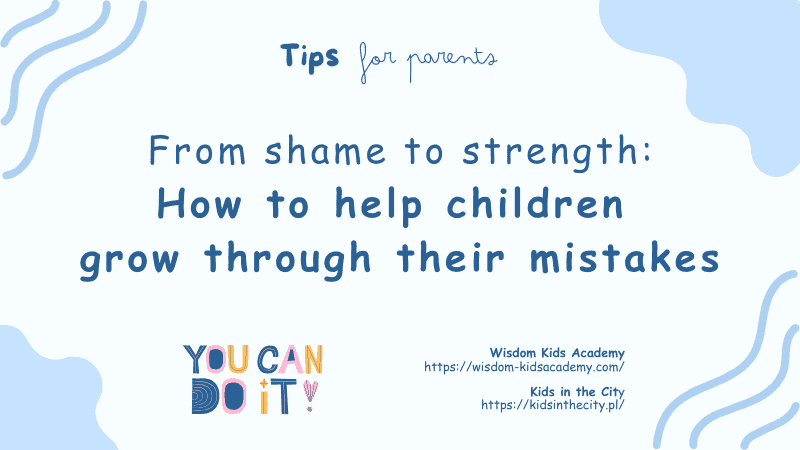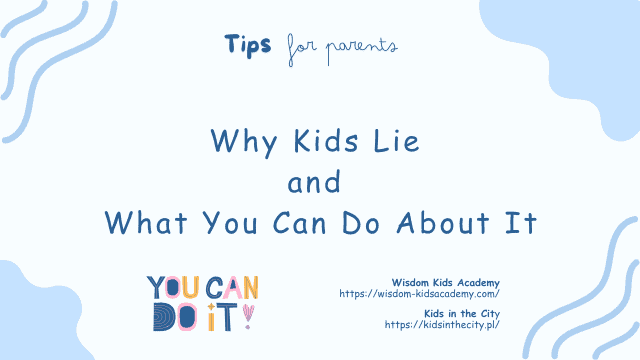Limor Jasinski, a Mindset Coach for Kids and Teens based in Warsaw, founder of Wisdom Kids Academy, on how to help kids manage their emotions
How can you help your child navigate intense emotions in today’s demanding world? The key lies in providing them with the tools to understand and manage their feelings. As a mindset coach, I have dedicated myself to supporting kids and families in creating a nurturing environment for their children. Let me tell you a story about my friend Lisa and her 13-year-old son, Ben.
One evening, Lisa called me in frustration and worry. Ben had just experienced another emotional outburst, throwing his homework across the room and shouting that he couldn’t do it. “I just don’t know what to do anymore,” Lisa said, “I feel like I can’t reach him when he’s like this.” Many parents feel similar when their children struggle with overwhelming emotions. Whether it’s anger, frustration, sadness, or anxiety, these intense feelings can be challenging for both the child and the parent. So, how can we help our children navigate these emotional storms?
The Importance of Emotional Understanding
Understanding and managing emotions is crucial for children’s development. Emotions act as an internal compass, guiding children through life’s complexities, while parental guidance empowers them to handle their feelings effectively. Together, these principles lay the foundation for well-rounded, resilient individuals.
Advantages of Teaching Emotional Understanding
Teaching emotional understanding to our children has numerous benefits that extend into all areas of their lives.
- Emotional Intelligence: Children can improve their emotions and responses in different ways by developing the ability to recognize and understand them.
- Better Coping Skills: Providing children with resources to regulate their emotions helps them manage stress effectively, which improves mental health and overall well-being.
- Improved Relationships: Understanding emotions fosters better communication and stronger relationships with peers, family members, and others as they learn empathy and compassion.
By instilling these skills, we prepare our children to face challenges with a calm and composed mindset.
What Happens If as Parents We Ignore Our Child’s Emotional Needs?
Neglecting to confront our children’s emotional needs can have negative consequences such as increased anxiety affecting their mental and physical health. Additionally, if children lack the tools to cope, they might express their emotions through negative behavior, leading to problems at school and in social settings. Recognizing these potential pitfalls is crucial and emphasizes the importance of proactive emotional guidance.
Here Are Some Effective Techniques to Teach Emotional Understanding
Connecting with and teaching our children about their emotions requires thoughtful and engaging approaches. Here are some effective techniques:
- Identify Triggers: The first step is to understand what sets off your child’s emotions. Sit down with your child and discuss what makes them feel stressed, angry, or upset.
- Teach Deep Breathing: Deep breathing exercises can help calm the mind and body.
Here’s a quick and easy breathing technique to teach your child: The 4-7-8 Breathing Technique. This technique is suitable for soothing the nervous system and can significantly decrease anxiety and encourage calmness. Practicing it regularly can help your child become more aware of their breath and better control their emotional responses.
- Encourage Expression Through Art: Art can be a therapeutic way for children to express their emotions.
- Use Positive Self-Talk: Help your child develop a positive self-talk habit. Phrases like “I can handle this,” “I am in control,” and “I will get through this” can replace negative thoughts and feelings.
- Stay Connected: Maintain open lines of communication with your child. Let them know it’s okay to talk about their feelings and that you are there to support them without judgment.
Real-Life Application
Teachable moments happen every day—like the time my son was playing a new video game. Naturally, his first tries weren’t successful, and he grew frustrated, throwing the controller to the floor. It was a perfect opportunity to explain the importance of regulating emotions and understanding that learning new skills takes time. I explained that his brain needed to develop new neural pathways for this game, and the only way to improve was through practice and patience. This conversation not only calmed him but also gave him a practical approach to handling frustration.
The Science Behind Emotions
Conclusion
Handling our children’s strong emotions can feel daunting, but with the right tools and understanding, we can guide them through these challenging moments. Remember, it’s not about stopping the storm but helping them navigate through it. By identifying triggers, creating safe spaces, practicing calming techniques, and encouraging positive self-talk, we can provide our children with the guidance they need.
What strategies have you found helpful in managing your child’s strong emotions? Share your thoughts and let’s support each other in this journey of parenting.
About the Author
Limor Jasinski – the founder of Wisdom Kids Academy in Poland, and a fervent advocate for children’s development. A Tel Aviv native, Limor’s journey in nurturing young minds began early in her career when she worked as a caretaker for children, revealing her innate connection with them. This connection sparked a lifelong passion that led her across continents, from the welcoming communities of Canada to the enchanting landscapes of Poland and Warsaw.
Limor holds over a decade of experience in coaching, starting with her certification from TUT Coaching College and followed by advanced training at the Robbins-Madanes Training program in the U.S. She further honed her skills by earning a Practitioner of Excellence certificate from The Strategic Intervention Coaching Institute and becoming a certified Wisdom life coach for kids through Adventures in Wisdom.
At Wisdom Kids Academy, Limor uses the WISDOM System for Coaching Kids™, a part of the Adventures in Wisdom™ Curriculum. This innovative program, which includes 27 specially designed books, has been adopted by life coaches in over 30 countries to develop personal growth and leadership skills in children and teens. Limor’s curriculum focuses on essential life skills like resilience, self-esteem, and overcoming fears through compelling storytelling, enabling kids to confidently face life’s challenges.
Limor takes pride in her role as a coach, inspiring greatness and encouraging each child to dream big and develop a robust mindset for overcoming any obstacle. Under her guidance, children at Wisdom Kids Academy embark on a transformative journey of growth and discovery, unlocking their potential and achieving their goals with confidence and excitement. Connect with Limor: limor@wisdom-kidsacademy.com, Instagram, Facebook. Wisdom Kids Academy’s website in English.
Wisdom Kids Academy’s services
Explore our full range of offerings and real-life success stories on our website: wisdom-kidsacademy.com. Interested in personalized coaching or engaging workshops for schools and parents? We cover various topics of growth mindset, such as Strengthening Self-Confidence and Making Good Decisions. How do you instill values and self-responsibility at home? Visit us to learn more and share your experiences. Together, let’s enrich our parenting skills and empower our children for a brighter future!
















